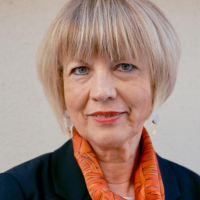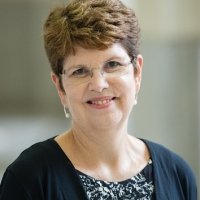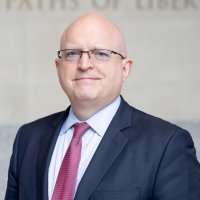The Current Challenges and Future of OSCE: A Conversation with OSCE Secretary General Helga Schmid
Over the last three decades, the Organization for Security and Co-operation in Europe (OSCE) has played a vital role in European security architecture and the rules based international order more broadly. However, the geopolitical tensions brought by Russia’s invasion of Ukraine have disrupted its work. Several major decisions, including the adoption of the organization’s budget and the extension of the Special Monitoring Mission in Ukraine, have been blocked by Russia. This has raised the question of how can OSCE continue to contribute to peace and security in the region?
This discussion with Helga Maria Schmid, the Secretary General of the OSCE, focused on current challenges facing the OSCE and how the Organization sees its future role in European and Eurasian security, including in post-conflict Ukraine. The discussion was chaired by Ambassador (ret.) Philip Reeker, Chair of the Wilson Center’s Global Europe Program.
Key Quotes
Helga Maria Schmid, Secretary General
“Addressing security from a holistic angle is our strength. [...] We were probably the first organization to define the fact that security is always not only political and military security [but] also the environmental aspects.”
“We need to do our utmost to help people affected by conflicts. In 2014 we were the first responding to the conflict in Ukraine. Our missions on the ground negotiated local ceasefires, enabling people to rebuild local infrastructure.”
“I think the added value of our field missions is that we do not only work with governments, [but] we really very much work with the local level, [having a] large presence [and] bringing together local actors, [working on] reconciliation.”
“I had to close all our missions in Ukraine […] but we are back with almost 70 staff […] at the request of the Ukrainian government to support them on humanitarian demining, on cyber security, we provide psychosocial support to women, and we are finalizing a new [support] program for children.”
“We help participating states to live up to their commitments, but we also offer our support particularly when it comes to capacity building upon their request.”
Phillip Reeker, Ambassador (ret.)
“It is coming upon 50 years since the signing of the Helsinki Final Act. [...] The key principles, the purpose and the functioning of the OSCE were outlined [...] [and] agreed to by all of the [founding] countries, defining three dimensions, a political-military, an economic, and a human dimension.”
“It is about people. The OSCE encompasses more than 1.3 billion people from 57 participating states. It is the largest organization of its kind, almost rivaling the United Nations in terms of gathering and convening ability, bringing together countries that may not even be able to engage with each other as neighbors.”
“Many people are unaware how long there has been an OSCE field mission in Ukraine–long before the current war, even predating the 2014 invasion of Crimea.”
Speaker

Introduction

Moderator

Albright Stonebridge Group, Department of State (ret.)
Hosted By

Global Europe Program
The Global Europe Program is focused on Europe’s capabilities, and how it engages on critical global issues. We investigate European approaches to critical global issues. We examine Europe’s relations with Russia and Eurasia, China and the Indo-Pacific, the Middle East and Africa. Our initiatives include “Ukraine in Europe”—an examination of what it will take to make Ukraine’s European future a reality. But we also examine the role of NATO, the European Union and the OSCE, Europe’s energy security, transatlantic trade disputes, and challenges to democracy. The Global Europe Program’s staff, scholars-in-residence, and Global Fellows participate in seminars, policy study groups, and international conferences to provide analytical recommendations to policy makers and the media. Read more


Kennan Institute
After more than 50 years as a vital part of the Wilson Center legacy, the Kennan Institute has become an independent think tank. You can find the current website for the Kennan Institute at kennaninstitute.org. Please look for future announcements about partnership activities between the Wilson Center and the Kennan Institute at Wilson Center Press Room. The Kennan Institute is the premier US center for advanced research on Eurasia and the oldest and largest regional program at the Woodrow Wilson International Center for Scholars. The Kennan Institute is committed to improving American understanding of Russia, Ukraine, Central Asia, the South Caucasus, and the surrounding region through research and exchange. Read more
